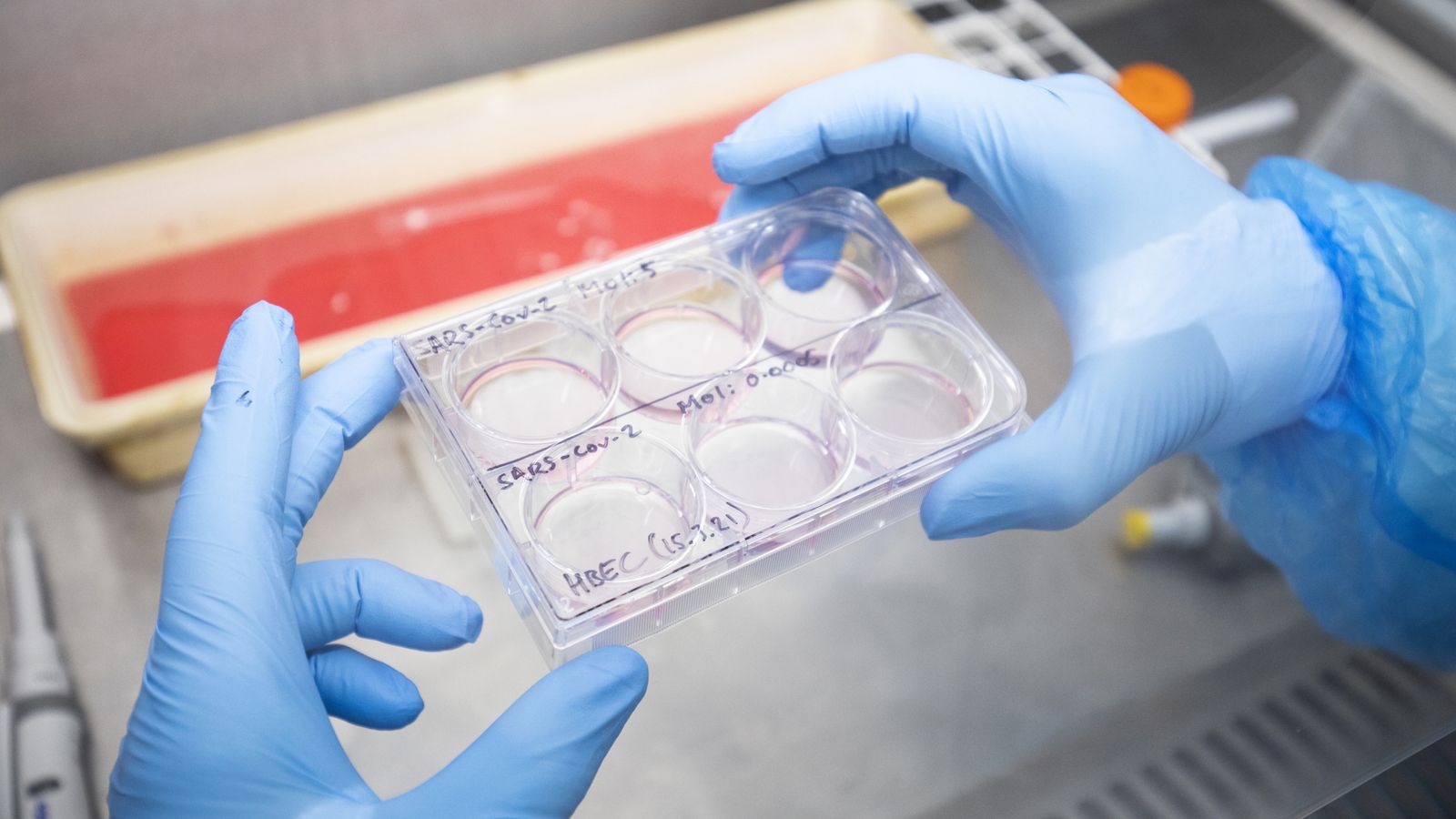Young people who have previously had COVID-19 are going to be deliberately exposed to the virus for a second time – in a new study that aims to see how their immune systems react.
The University of Oxford’s “human challenge” trial also hopes to discover what dose of coronavirus is needed to cause a reinfection, and what this may mean for developing protective immunity against the disease.
People aged 18 to 30 who have previously been naturally infected with COVID will be recruited and re-exposed to the virus in a safe, controlled environment.
Participants will be quarantined for 17 days and cared for by researchers at a hospital until they are no longer at risk of infecting others, and they will receive just under £5,000 as payment.
Recent research has suggested that prior infection may not fully protect young people in the future, with an observational study performed in the US indicating that 10% of participants ended up getting reinfected.
Human challenge studies have played a key role in furthering the development of treatments for diseases including malaria, tuberculosis, typhoid, cholera and flu.
Professor Helen McShane, the chief investigator, said: “Challenge studies tell us things that other studies cannot because, unlike natural infection, they are tightly controlled.
“When we reinfect these participants, we will know exactly how their immune system has reacted to the first COVID infection, exactly when the second infection occurs, and exactly how much virus they got.
“As well as enhancing our basic understanding, this may help us to design tests that can accurately predict whether people are protected.”
Please use Chrome browser for a more accessible video player
Regular check-ups in the year after reinfection will help establish the immune response generated by the virus – and this could contribute to the creation of better vaccines, and a greater understanding of how long immunity lasts.
The original strain of COVID-19 from Wuhan is going to be used because this is the one that scientists have the most information about, but another variant could also be included.






















